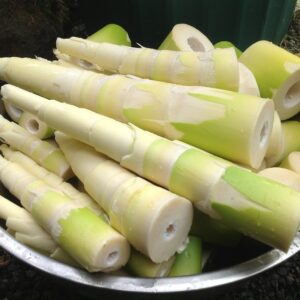Industry Overview
The
eco-friendly bamboo granules spoon manufacturing business focuses on producing biodegradable spoons made from bamboo, a highly sustainable material. Bamboo is not only
fast-growing and
renewable, but it also offers strength and flexibility, making it ideal for producing cutlery. As environmental concerns regarding
plastic pollution grow, bamboo cutlery is gaining popularity as an alternative, particularly in the
hospitality and
food packaging industries.
Key Points:
- Bamboo spoons are compostable and eco-friendly alternatives to plastic.
- The global market for sustainable packaging is expanding, with bamboo products leading the charge in this segment.
- Bamboo cultivation is highly sustainable, offering a low carbon footprint for manufacturers.
Scale and Profitability of Industry
The
bamboo granules spoon industry is relatively new but holds strong potential for profitability due to the growing demand for
eco-friendly and
plastic-free alternatives. The
hospitality industry, especially restaurants and cafes, is increasingly adopting bamboo products, which helps drive profits for manufacturers. The industry is scalable, allowing small-scale production for local markets or larger units for
national and
international distribution.
Subsidy Opportunities
- PMEGP: Financial assistance to businesses that produce eco-friendly products and aim to reduce plastic use.
- National Bamboo Mission: A government initiative to promote bamboo cultivation and processing, which provides funding and technical support.
- State Government Schemes: Some states offer subsidies and support for businesses focused on bamboo products and sustainability.
Eligibility Criteria
- MSME registration.
- Investment in machinery to produce bamboo granules and transform them into cutlery.
- A comprehensive business plan that focuses on the sustainability of the business and its environmental impact.
Project Cost and Subsidy
The
project cost for setting up a bamboo granules spoon manufacturing unit can range from
₹8 Lakhs to ₹20 Lakhs, with subsidies covering
30%-50% of the total cost, depending on the scheme and region.
To apply for the Food Processing Scheme, the following mandatory documents are required for new enterprises (Individuals/Firms) as outlined in the manual
1. PAN Card of concerned/all promoters.
2.Aadhaar Copy & Photo of all promoters/guarantors.
3. Address Proof: Any of the Officially Valid Documents (OVD) such as:
o Utility bill (not more than two months old) from any service provider (Electricity, telephone, post-paid mobile phone, piped gas, water bill).
o Property or Municipal tax paid receipt.
o Ration Card (Individual).
o Driving Licence
o Aadhaar Card.
o Voter ID Card.
4. Details of the site where the unit is to be established, including whether it is owned/rented/leased, along with proof (Lease/rent agreement should be for more than the loan repayment period).
5. Photocopy of Bank
6. Estimates and Quotation of all capital expenditure and machinery and equipment to be purchased. Statement/Bank Passbook for the last 6 months.
For existing enterprises with a turnover of less than 1 crore, similar documents are required, including PAN Card, Aadhaar, address proof, and site details.
If you need more specific information or additional documents, please let me know!















